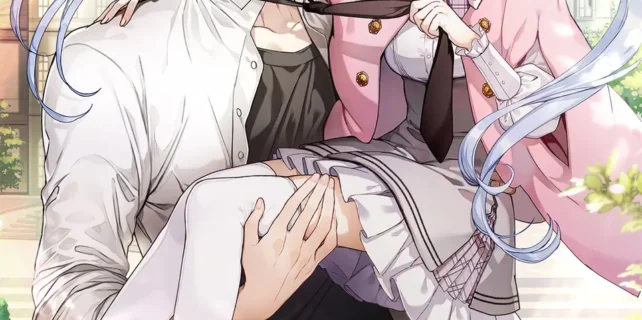The Sand Bride - Chapter 21
* * *
A trade caravan was fundamentally a group of merchants. The fact that they had come all the way to the perilous Gharyam meant they were seasoned traders who had weathered every storm. Their calculations were precise, prioritizing profit over sentiment.
To them, goodwill was merely an uncertain insurance for the future. Still, they had enough compassion to offer ragged men—clearly victims of some misfortune—old clothes and food.
Yet contrary to their earlier promises, the man’s so-called acquaintances showed no eagerness to help.
“How can you do this to me? Didn’t I broker that deal for you before—?!”
“Ah, I’m grateful for that! But that was then, and this is now! How can I lend you money without any collateral?”
“Who said anything about borrowing money? All I asked was for you to take us back to the capital when you return!”
“That amounts to the same thing! Besides, aren’t those bandits headed to the capital too? If we cross paths, who’s to say they won’t harm us? Even if they spare us, what if they damage our goods? The losses would be catastrophic! You know as well as I do that Gharyam doesn’t punish bandits for killing foreign slaves!”
His face souring as if unwilling to take risks, the merchant shook his head emphatically. The man looked wronged but couldn’t refute the merchant’s words. After all, the “acquaintance” before him happened to be the most ruthless among his contacts—a slave trader.
Even they had risked everything to escape, knowing that in Gharyam, slaves were treated as less than human.
The southern kingdom of Donova and the eastern kingdom of Zelita had no official slavery, but those who fell into insurmountable debt were secretly sold into bondage abroad. This was common knowledge.
Gharyam, however, was a nation where slavery flourished openly—so much so that it could be called the largest importer of slaves. Only those with utterly depraved minds could become slave traders, knowing the horrors inflicted upon them. The merchant before the man was precisely that kind of monster.
But the man and his group couldn’t back down either. If the bandits tracked them to this inn, the consequences didn’t bear thinking about. As the man’s face twisted in despair, the merchant softened his voice, coaxing:
“Well, if you’re truly desperate, there is a way. Fulfill one request of mine, and I’ll take that risk for you.”
“R-Really?”
The man’s face lit up as he seized the merchant’s hand. The merchant smiled benignly.
“Of course. You may not know this, but Gharyam’s new Sayar is about to be crowned.”
“New Sayar?”
“Indeed. Gharyam will finally have new leaders. Rumor has it the Aldana Temple is purchasing high-born slaves at premium prices.”
The man’s face hardened. He was beginning to grasp exactly what the merchant wanted.
Gharyam’s ruling system consisted of two kings and their supreme leader, the Sayar—three in total. Succession fell to one of their children, regardless of birth mother, all considered siblings.
The Aldana Temple, though called a temple, functioned more like the Sayar’s personal faction. Upon the coronation of a new Sayar and kings, they would send forty-four men and women—as dictated by doctrine—to be presented before them.
Most who weren’t chosen were executed, so those sent were typically slaves.
With a heavy sigh, the man asked one last question:
“Who is the new Sayar? Last I heard, the second child was the favored candidate.”
“That woman died two years ago. Not honorably—the whole capital whispers about it.”
“Then who succeeded?”
“She had two brothers, one older and one younger. It’s the elder.”
The merchant grinned. His subtle gaze landed on Esther.
“That’s why the Aldana Temple is particularly interested in female slaves.”
The man’s face contorted. The merchant’s demand was now painfully clear.
The Aldana Temple preferred slaves of noble lineage—children sold to settle debts, fallen aristocrats’ descendants…….
Unlike those born into slavery, these “high-born” slaves lacked subservience but also the crude demeanor of lifelong bondsmen, making them ideal for the Temple’s purposes
The man understood: the merchant wanted Esther. Young, beautiful, and once-happy—now hurtling toward ruin.
Of course, he hesitated. But as a merchant himself, cold calculation prevailed. Handing over Esther was the only solution.
Guilt twisted his face as he recalled Esther—barely older than his niece—her help in their escape, and her suffering at the bandits’ hands. Yet in the end, he nodded. There was no other way.
‘Forgive me.’
Watching Esther rejoice at the merchant’s promise to take her to the capital, the man silently apologized. He consoled himself that if he made it home, he could inform her relatives.
Or if the Aldana Temple rejected her, he could borrow money from another contact to buy her freedom at auction.
Bearing the weight of Esther’s uncertain future, the caravan arrived at Gharyam’s capital, Marunus. As the gates of that colossal, eternal city swung open, Esther stared with eyes frozen in dread.







